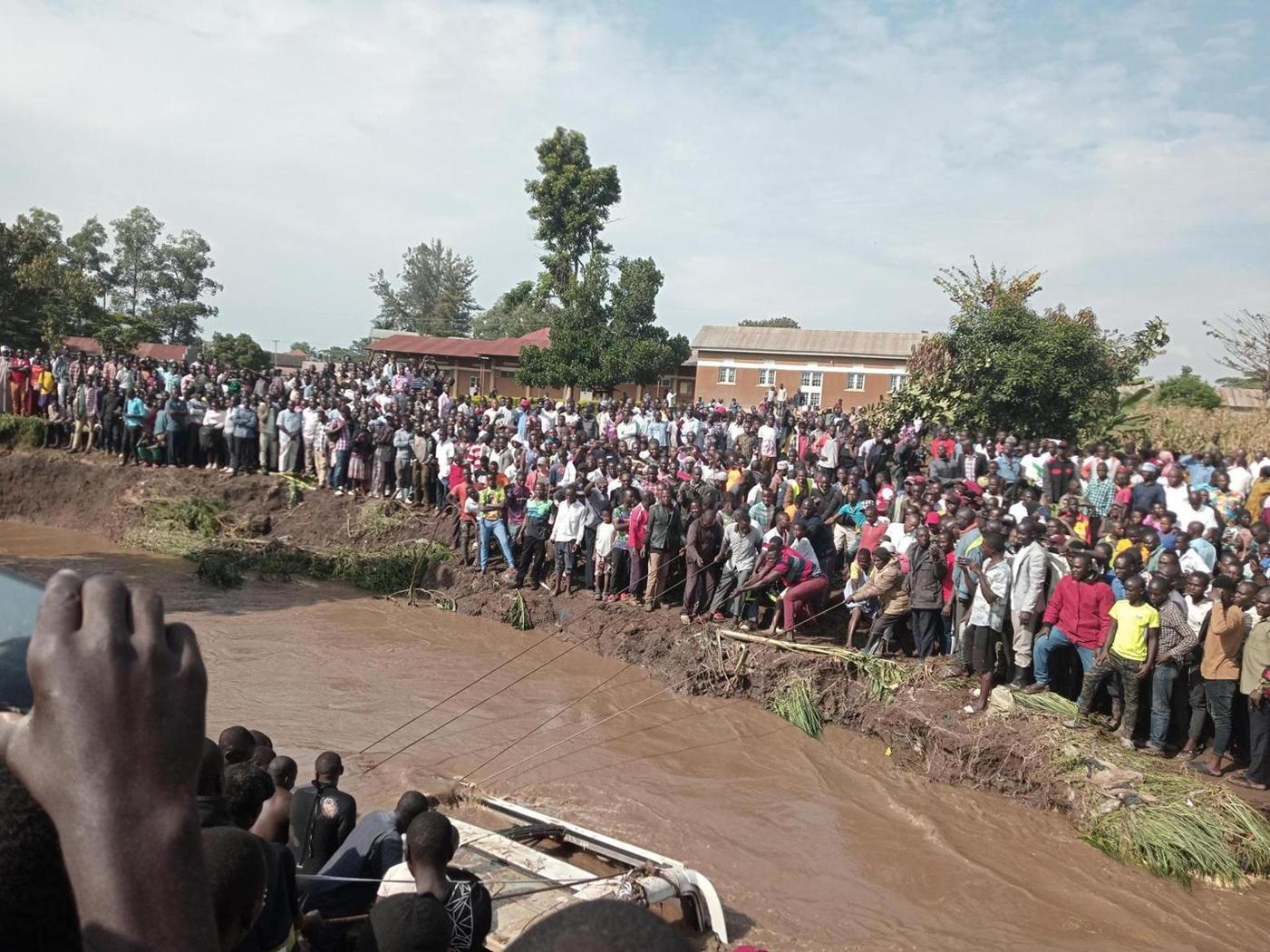Africa-Press – Uganda. In mid-July 2022, as deaths from extreme hunger or related diseases neared the 900 mark in Karamoja Sub-region, scores of people died after flash floods pounded the sub-regions of Elgon and Sebei.
The two natural disasters occurred barely a fortnight after the launch of a report on migration, governance and migration diplomacy in Uganda. Dr Grace Edward Galabuzi, the lead researcher on the study, had warned that migrations occasioned by extreme weather were “escalating.” This warning was sounded as famished children from Karamoja Sub-region poured onto the streets of Kampala in droves.
“We wanted to find out the conditions under which the immigrants stay, where they go. We wanted to see whether we can review the Ugandan migration policy to establish whether there are gaps that we should close,” he said.
The migration issue in Uganda has intra and inter strands to it. Uganda is a destination of choice for a number of labour immigrants in the region. In 1996, Djibouti, Ethiopia, Eritrea, Kenya, Uganda, Somalia and Sudan (by extension South Sudan) established the Inter Government Authority on Drought and Development (Igad) to ensure free movement of persons and address migration issues across the member states.
“Article 16 guides member states for movement of persons displaced by natural disasters to provide protection because there is an international regime protecting people displaced by natural disasters,” Ms Lucy Daxbacher, an immigration expert and the country head of Igad, said, adding that this was at the onset of natural disasters that led to loss of lives and animals in 1996.
Ms Daxbacher hailed Uganda for championing free movement of persons in the region, but hastened to add that peace and security within the region remains an outstanding issue.
Delegates, however, noted that in recent times extreme weather—much like security and economic conditions—has precipitated migrations.
“We need to come together as a continent to fight climate change. There is a big opportunity as Africa COP27 (the United Nations Climate Change Conference) will be in Egypt,” Ms Margaret Athieno Mwebesa, the commissioner for climate change in Uganda’s Water and Environment ministry noted, adding, “This is Africa’s COP, this is critical and timely. We want to bring our priorities to the forefront as Africa.”
Ms Mwebesa further noted that climate-induced human mobility and displacement requires regional cooperation.
A report launched in March by the Water and Environment ministry and International Organisation on Migration (IOM) provided considerable empirical evidence to support the argument that climate change and environmental degradation are key drivers in human mobility in eastern Uganda.
“Populations are moving due to climate change, mudslides, floods, rising rivers. Crops as well as livestock have been lost,” Mr Sanusi Tejani Savage, IOM Uganda’s chief of mission, said.
Ms Susan Ngongi Namondo, the UN resident coordinator, said the situation has become drastic, with the vulnerable poor bearing the brunt as a palpable lack of resources triggers migratory pressures.
“It is the human activities which have sparked off the crisis. The UN has continuously sounded the warning to move into crisis mode. We need an avalanche of actions towards combating the effects of climate change,” she said, adding that Karamoja—which is experiencing a humanitarian crisis—needs to build the long-term resilience of her people.
Mr Sam Cheptoris, the Water and Environment minister, confirmed that the drought in Ethiopia, Somalia, Sudan and Karamoja is partly due to climate change.
Experiences of the impacts of climate change shared by member states represented at the Inter-ministerial conference, showed that whereas some are reactive others are choosing to be proactive. Rwanda for instance carries out climate change vulnerability assessments. It has also committed to reducing 38 percent of emissions by 2030 as per Juliet Kabera, the director general of Rwanda Environment Management Authority.
Mr Jacob Mwiimbu, the Zambian minister for Home Affairs and Internal Security, said his government has prioritised the implementation of the National Migration Policy in line with its national development plans. Mr Mwiimbu revealed that human-made and natural hazards in Zambia led to internal displacement of 4,616 persons in 2020 alone. The country also hosts refugees and asylum seekers from countries within the continent, many of whom are fleeing conflict.
For More News And Analysis About Uganda Follow Africa-Press






